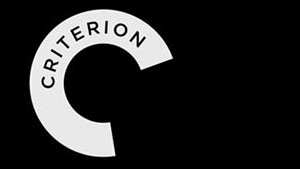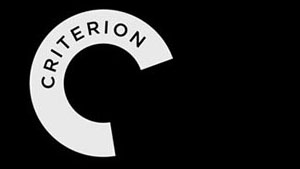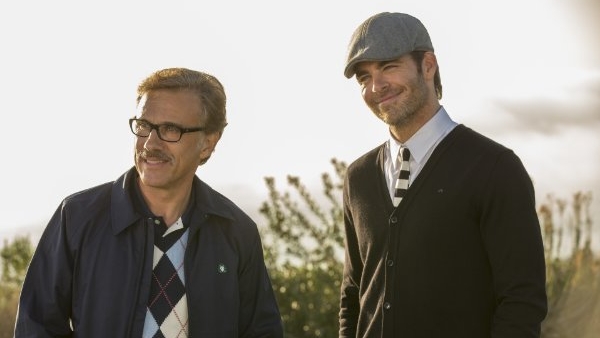
“I have always felt that Peeping Tom and 8½ say everything that can be said about film-making, about the process of dealing with film, the objectivity and subjectivity of it and the confusion between the two. 8½ captures the glamour and enjoyment of film-making, while Peeping Tom shows the aggression of it, how the camera violates… From studying them you can discover everything about people who make films, or at least people who express themselves through films.”– Martin Scorsese
I often feel that film critics, scholars, and writers are naturally more drawn to “movies about movies”– pictures which shed light onto the filmmaking process at any angle– and tend to show them more favor than the average moviegoer. (Which makes logical, rational sense.) If we accept both observations as true, or at least acknowledge there’s some truth to each, then Peeping Tom and 8½ might be the holy grail of double features for cinema aficionados. These are films thoroughly steeped in their own medium, to the point where the medium itself functions very nearly like a character in the narrative; in Peeping Tom, it’s a murderous documentary film stitched together by disturbed protagonist Mark, and in 8½, it’s a big-budget spectacle which beleaguered director Guido struggles to conceive and bring to life from the moment we first meet him.
 And their respective projects are never too far behind them from scene to scene. Mark’s own movie is an undeniable part of his identity, as every action he takes in Peeping Tom is guided by his filmmaking endeavor, and Guido, even when convalescing at a spa, can’t escape the pressure of helming his latest film. Their work follows them everywhere, though in Mark’s case he’s more or less working wherever he goes. Regardless, both of their cinematic projects very much define them as characters and as people; they encompass inner conflicts that range from the emotional, to the spiritual, to the creative. Some of these speak more to Mark than to Guido, and vice versa– Guido’s in more of a creative, spiritual rut while Mark’s an emotional mess, the product of a childhood spent as a lab rat for his psychologist father.
And their respective projects are never too far behind them from scene to scene. Mark’s own movie is an undeniable part of his identity, as every action he takes in Peeping Tom is guided by his filmmaking endeavor, and Guido, even when convalescing at a spa, can’t escape the pressure of helming his latest film. Their work follows them everywhere, though in Mark’s case he’s more or less working wherever he goes. Regardless, both of their cinematic projects very much define them as characters and as people; they encompass inner conflicts that range from the emotional, to the spiritual, to the creative. Some of these speak more to Mark than to Guido, and vice versa– Guido’s in more of a creative, spiritual rut while Mark’s an emotional mess, the product of a childhood spent as a lab rat for his psychologist father.
We’re treated to random footage of the experiments Mark endured as a child; dear old dad drops a lizard into his son’s bed, films him while he’s sleeping, and forces the boy to sit and watch his mother die. But apart from those brief glimpses into childhood, we spend most of our time with Mark as an adult, the awkward, nervous, shut-in product of his father’s long-form exploration of human fear. That’s to say nothing of Mark’s penchant for cornering and killing random women, all in the name of completing his father’s terrible work, which admittedly may deserve a mention before any of his other less commendable traits. Like dad, Mark wants to capture pure fear on camera; to that end he stalks different women, traps them, and films then as he guts them with his camera’s bladed tripod legs.
For Mark, filmmaking is obsession; he’s driven to cobble together his “documentary” thanks to the trauma he experienced in boyhood. Interestingly, Peeping Tom focuses much more on the technical process of making movies, though, and concerns itself less with graphic depictions of the spree of slayings that will ultimately comprise the whole of Mark’s life’s work. We see him in his apartment, where he has set up his very own studio for developing his film and editing it all together; we watch him as he reviews footage of his grisly nighttime activities, sitting alone in a dark room as he observes the scene in rapt attention. Around Peeping Tom‘s third act, he breaks down over one particular reel that he bungled in the process of shooting, and he laments– to our horror– that he’s going to have to film it again. He’s a perfectionist. Nothing less than exquisite flawlessness will do in his eyes.
In short, Mark is the impassioned, zealous artiste director personified. In both literal and figurative ways, his work is his life; as Peeping Tom concludes, so does Mark’s film, the grim and tragic ending for which he planned out long in advance of its completion. Not only that but Mark’s film is informed directly through his life experiences. Relieve him of his father’s influence, and the course of Mark’s entire life changes drastically, to the point where Peeping Tom‘s events likely do not even occur. As gruesome and horrific as Mark’s actions are, they’re clearly driven by a need for catharsis and resolution regardless of being so grimly and appallingly misguided.
Ultimately, Peeping Tom operates on two very different ends of the filmmaking spectrum– the cold, mechanical side, the nuts and bolts aspect of the art form (as in the scenes of Mark at work on set at the film studio which employs him, and “at work” shooting and killing for his film), and also the emotional, creative domain (as in the ways Peeping Tom reveals the anguish which impels Mark to photograph his victims to understand fear). But Peeping Tom‘s claim to fame lies in the controversy surrounding its release more than fifty years ago; Powell’s film was so reviled at first glance that its reception proved to be debilitating for his career. Partly, that’s just a sign of the time Peeping Tom was released in– Psycho enjoyed a chilly critical reaction in the same year– but while critical attitudes certainly played a part in the film’s downfall, it’s the way Powell plays with and examines voyeurism that may have contributed more to his picture’s lambasting.
In cinema, the audience constantly plays the role of the voyeur. We’re peering into the lives of the protagonists and antagonists, staring fixated on their world as the plot of the film unfolds; therefore, critics and audiences should be used to bearing that unflattering but accurate designation. But Peeping Tom makes itself about voyeurism in a very overt way while also grounding its audience deeply in the sadistic machinations of its disturbed protagonist. Most of all, though, Peeping Tom requests– perhaps even requires— that we identify with Mark, an unforgivable and shocking demand for the time which grew into a matter of keen interest as time moved on and film criticism developed and grew by leaps and bounds. That element which led so many to cast the film off at the time of its birth has today drawn many more people to it and secured its position as an all-time classic of British cinema.
 Fellini, on the other hand, had no such troubles getting his audience and critics alike to accept 8½ and apply countless accolades to it immediately on release. 8½ enjoyed the justified unilateral fawning which his previous feature-length film, 1960’s La Dolce Vita, was denied; that particular film very nearly sparked a civil war of words and a social revolution in Italy. People alternately defended and decried Vita for its apparent decadence and its condemnation of the contemporary urban high life depicted over the course of the film’s running time. But no such vitriol surfaced in the wake of 8½, which to this day remains one of cinema’s greatest explorations of the need to create.
Fellini, on the other hand, had no such troubles getting his audience and critics alike to accept 8½ and apply countless accolades to it immediately on release. 8½ enjoyed the justified unilateral fawning which his previous feature-length film, 1960’s La Dolce Vita, was denied; that particular film very nearly sparked a civil war of words and a social revolution in Italy. People alternately defended and decried Vita for its apparent decadence and its condemnation of the contemporary urban high life depicted over the course of the film’s running time. But no such vitriol surfaced in the wake of 8½, which to this day remains one of cinema’s greatest explorations of the need to create.
Like Mark, Guido (Fellini stand-in Marcello Mastorianni) carries memories from the span of his life from youth to adulthood, all of which play a role in his artistic crisis. Unlike Powell’s deranged hero, though, Guido doesn’t have any idea what direction to take his film in. He’s suffering from a creative block. And 8½ manages quite smugly to exist as a film that’s both focused on the spiritual sources which stymie Guido’s efforts on his latest project– springing, more often than not, from his Catholic upbringing and his fascination and infatuation with the many women of his life — and on the ways in which his past drives him to create. If nothing else, 8½ is very clearly fixated on why people must create and imagine; maybe Peeping Tom is too, but comparatively that examination feels secondary to Powell, whereas for Fellini, it’s of the utmost importance.
For Fellini, 8½ proved an answer to an absolutely vital and towering question: what do artists do with themselves when they reach the peak of success? In Fellini’s case, the solution was to climb to the next peak. La Dolce Vita had a tumultuous reception at home, but it catapulted Fellini to great heights of international movie stardom even while his countrymen feuded over its better– or worse– merits on the streets and in the papers. 8½, on the other hand, secured his position as a master auteur and one of cinema’s true greats worldwide.
In a way, this has much less to do with the content of the film itself and more with the methods Fellini used to tell his story. 8½‘s greatest strength lies in its self-reflexive brilliance; it’s an intricate web made up of intertwined memories, ideas, dreams, and imagination, both those of Guido (the director in the film) and of Fellini (the director of the film). That sense of inner awareness and the existence of a cinematic consciousness within the film’s core allowed 8½ to break free from and wholly alter the traditional conventions of filmmaking to which his peers adhered. In fact, 8½ went on to be one of the 60’s most influential films– if not the most influential film of the decade, full-stop– and in large part that can be attributed to how much Fellini’s originality and creativity led to the liberation of his fellow directors from those very same conventions.



